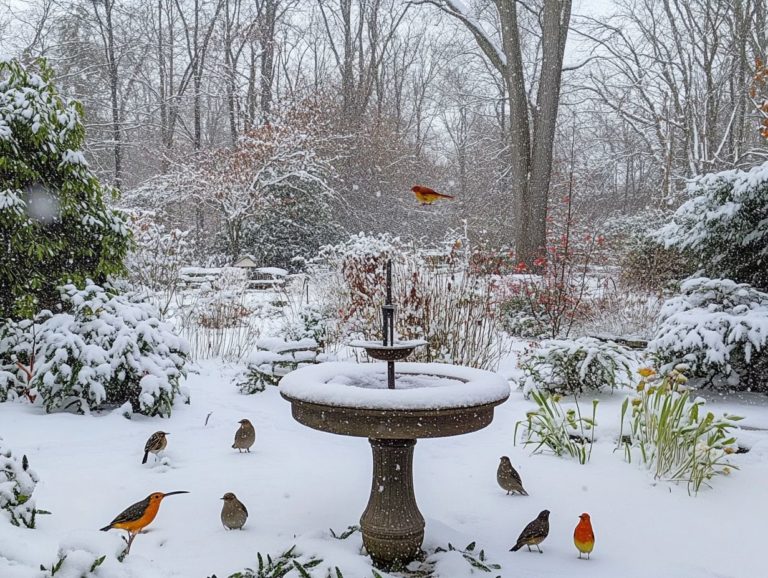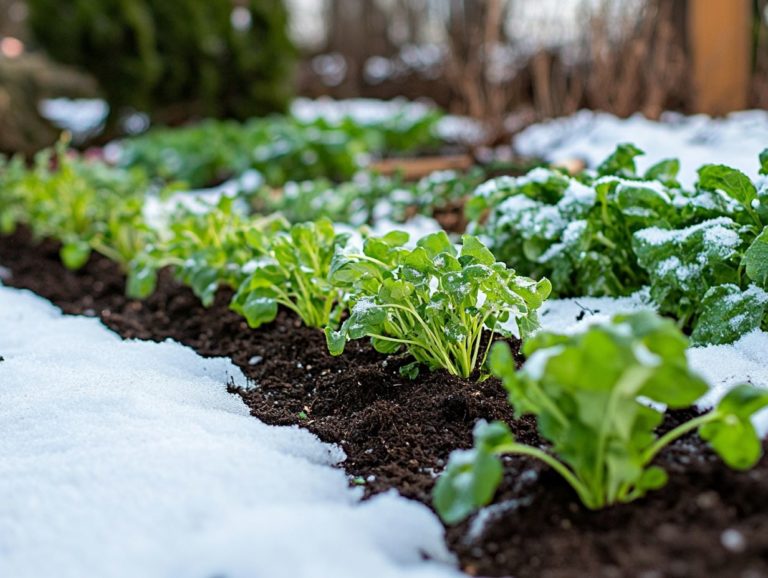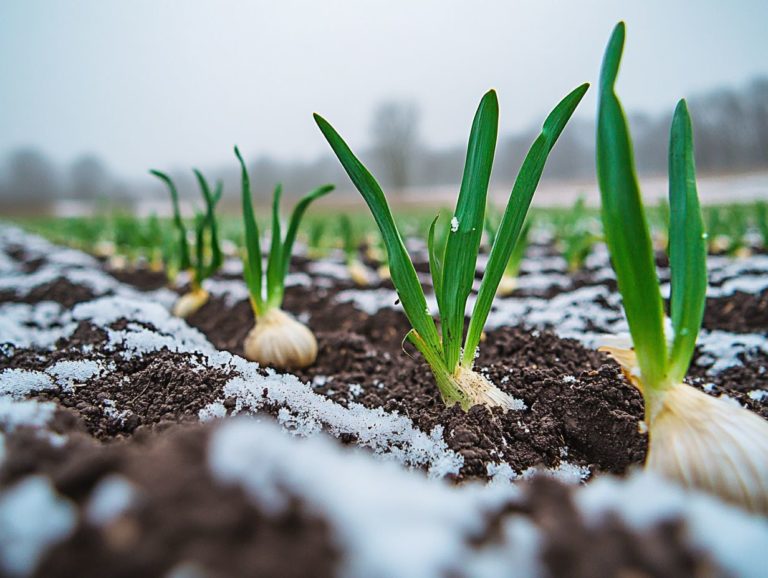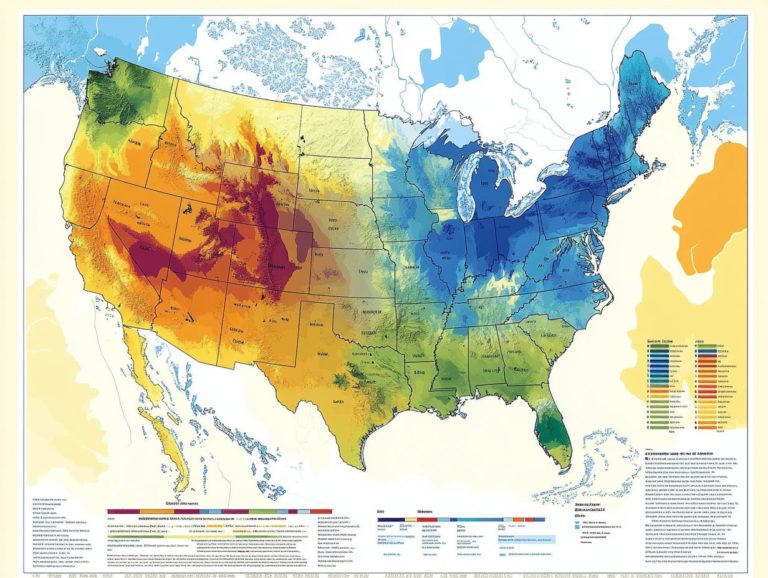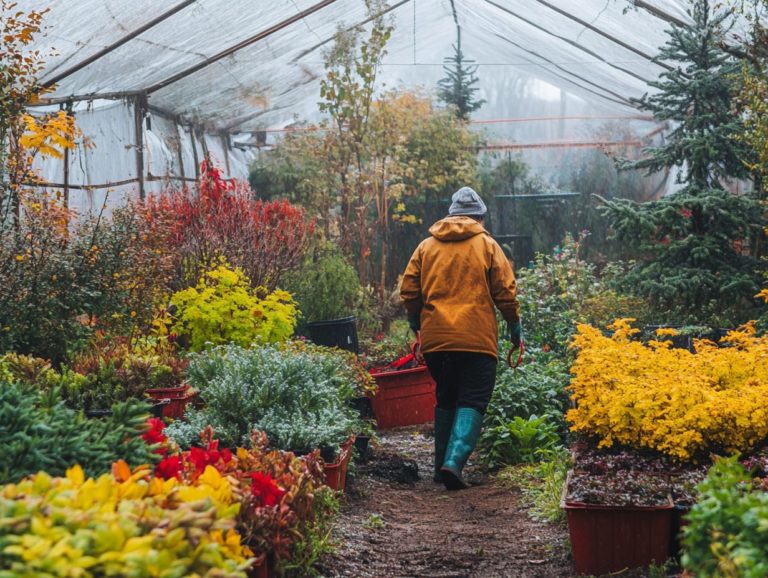Gardening Myths: Winter Edition
As winter envelops the landscape, it’s common for gardeners to assume it s time to set their tools aside and let nature take its course. However, this season is often misunderstood, giving rise to a host of gardening myths.
Do you believe that plants can t grow in winter or that pruning should wait until spring? It s time to dispel these misconceptions and uncover why winter care is essential for cultivating a flourishing garden. Prepare to reevaluate your winter gardening routine!
Contents
- Key Takeaways:
- Myth: Plants Don’t Grow in Winter
- Myth: Winter is a Bad Time to Prune Trees
- Myth: Mulching is Not Necessary in Winter
- Myth: Fertilizing is Pointless in Winter
- Myth: Winter is a Good Time to Ignore Your Garden
- Frequently Asked Questions
- What are some common gardening myths related to winter?
- Is it true that winter is a bad time to plant new trees and shrubs?
- Do plants need less sunlight in the winter?
- Should I remove snow from my plants?
- Is it necessary to cover plants during the winter?
- Do plants only grow during the spring and summer?
Key Takeaways:
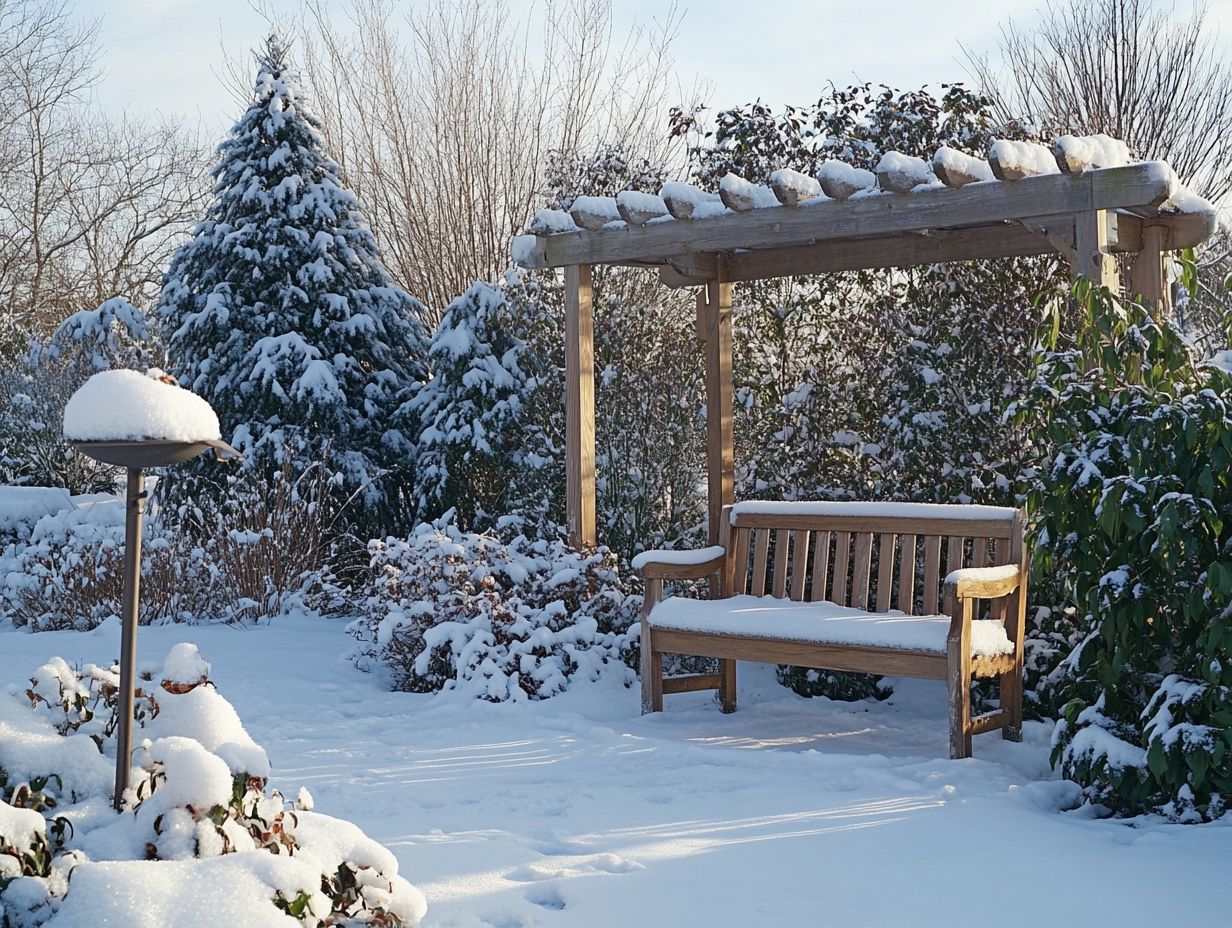
- Don’t believe the myth that plants don’t grow in winter. Many plants thrive in colder temperatures and can even be planted during this time.
- Contrary to popular belief, winter is actually a great time to prune trees. The lack of leaves makes it easier to see and access branches, leading to more effective pruning.
- Don’t skip mulching in winter! Mulching helps insulate plants and soil from extreme temperatures and also provides important nutrients for growth.
Understanding Common Misconceptions
Understanding common misconceptions in gardening is essential, whether you’re just starting out or have been tending to plants for years. It allows you to cultivate healthy plants, maintain soil health, and apply effective gardening practices.
Misinformation can perpetuate gardening myths that may lead to poor plant growth, unhealthy leaves, and ineffective protection strategies. To achieve gardening success, it s vital to learn from horticultural experts and debunk these myths. This ultimately provides you with accurate information and practical advice to enhance your plant care and garden design.
Take, for instance, the widespread myth that more fertilizer equates to healthier plants. In reality, too much fertilizer can harm plants and lead to weakened root systems. Horticultural experts emphasize a balanced approach tailored to the specific needs of your plants for optimal growth.
Another common misconception is that mulch prevents all weeds; however, without proper application and ongoing monitoring, invasive species can still appear. By unearthing these misleading notions, you can make informed decisions that not only bolster plant health but also nurture the vital structures of your soil.
Myth: Plants Don’t Grow in Winter
One prevalent myth is that plants simply stop growing in winter, which can lead you to misunderstand the seasonal needs of various plants, including young trees and winter vegetables. While growth may slow down, many plants continue to thrive with the right care, proving that gardening is truly a year-round endeavor.
During the colder months, recognize that sunlight remains essential for plant health, even when it s in short supply. Ensure your plants receive adequate light exposure to stimulate their growth, helping them build the strength they ll need come spring.
Maintain appropriate soil moisture levels; your plants need just enough water to avoid drying out while steering clear of root rot from too much saturation. Protecting your plants from frost is critical, as harsh temperatures can damage tender shoots. Using mulch can be a game changer, insulating roots and retaining moisture.
By implementing these strategies, you can effectively nurture your winter garden, allowing your plants not just to survive but to potentially flourish until the warmth of spring returns.
Debunking the Myth
Debunking the myth that plants don’t grow in winter requires an understanding of how various species adapt to the lower light and cooler temperatures. To thrive in this season, it’s crucial to avoid common pitfalls; you can learn about the top 5 winter gardening mistakes to avoid and employ specific practices, such as using organic mulch, to retain warmth and moisture effectively.
Many plants, like hellebores and winter aconite, not only endure the cold but actually flourish during these months, showcasing their remarkable resilience. Organic mulch plays a crucial role by insulating the soil, preventing it from freezing and ensuring a stable temperature that supports root activity. This protective layer also helps retain moisture a key factor for drought-tolerant plants like sedum and lavender, which continue to thrive even with reduced precipitation.
In winter, soil microbes become increasingly vital as they diligently break down organic matter and release nutrients into the soil. This process promotes overall plant health and vigor during this often-overlooked growing season, proving that winter can indeed be a time for growth.
Start your winter gardening journey today and watch your plants thrive!
Myth: Winter is a Bad Time to Prune Trees
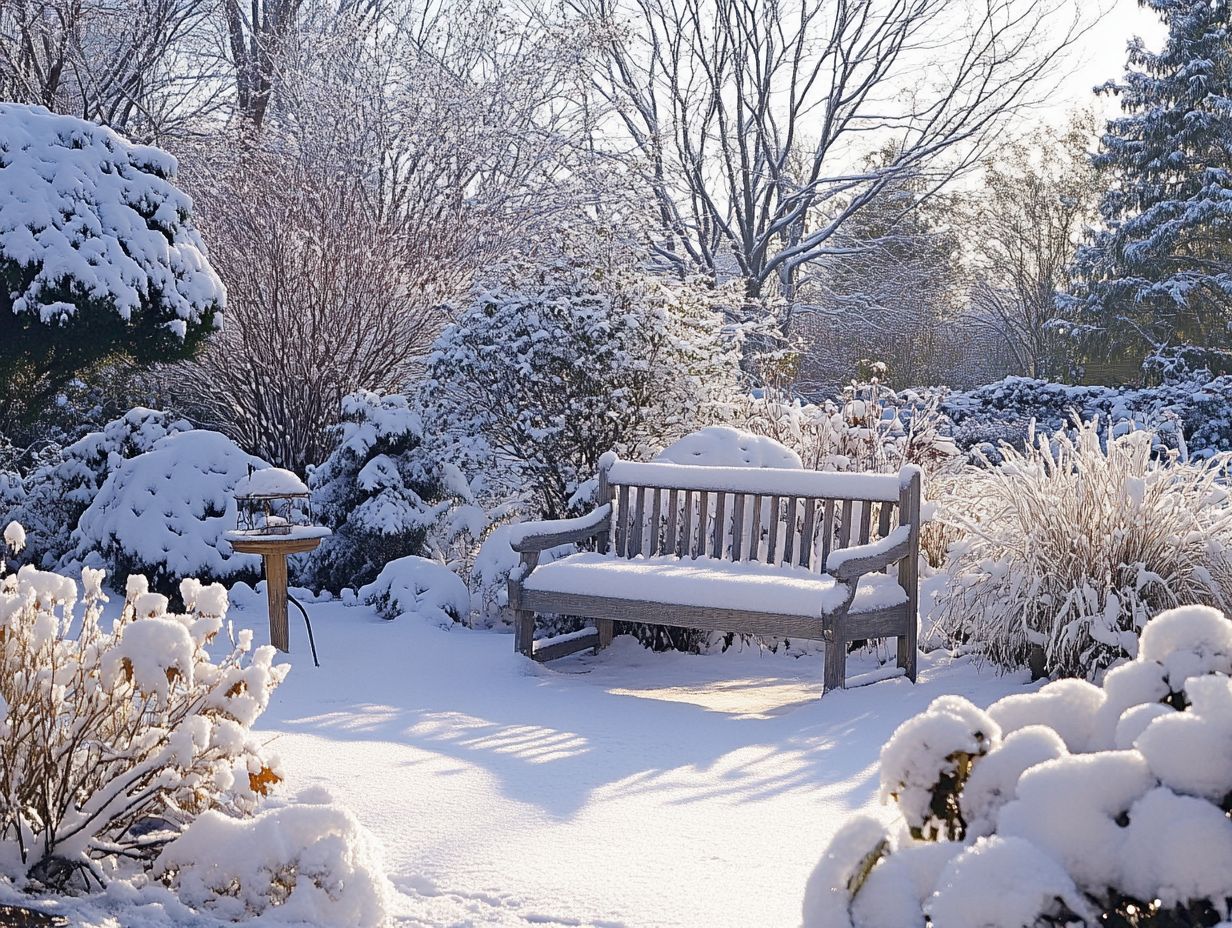
Another common myth is that winter is a poor time to prune trees. This can potentially stunt growth and harm young trees. In truth, winter pruning can be quite beneficial. It paves the way for healthier leaves and better structure in many tree species.
By trimming branches while trees are dormant, you can reduce the risk of disease. This minimizes exposure to harmful pathogens that thrive in warmer, moist conditions. Pruning in winter can also lead to strong growth in spring by allowing more sunlight and airflow to reach the inner canopy.
Specific techniques, like thinning cuts (removing some branches to allow better airflow) or heading cuts, can be used based on the type of tree. Deciduous trees typically benefit from cuts made between late winter and early spring.
For evergreens, prune just before new growth begins. This ensures they stay strong and resilient against winter stressors.
Exploring the Truth
Understanding the truth about winter pruning shows it not only protects your plants but also promotes vibrant leaves and robust growth for the upcoming season. This essential practice allows you to remove dead or diseased branches, reducing the risk of pest infestations and infections that can harm your trees.
Make sure to trim back any overcrowded or crossing branches. This enhances air circulation, which is vital for preventing fungal diseases. Timing is key; pruning during the dormant season helps your plants bounce back quickly when spring arrives.
Use sharp, clean tools for precise cuts. This helps your trees and plants heal quickly as spring arrives.
Myth: Mulching is Not Necessary in Winter
The misconception that mulching is unnecessary in winter can harm soil health and make your plants more vulnerable to frost damage. It s essential to recognize the benefits of using organic mulch even in colder months.
Mulching insulates plant roots against extreme cold. This significantly reduces the risk of frost damage and the harmful effects of freeze-thaw cycles. This organic layer also keeps soil moisture levels stable and improves soil structure over time.
By acting as a protective buffer, mulch reduces soil compaction, promotes better aeration, and supports beneficial microorganisms that are key for nutrient cycling. If you re winter gardening, consider using materials like straw, shredded leaves, or pine needles. These provide excellent insulation and enrich the soil as they decompose.
To fully benefit, apply a generous layer typically three to four inches so your plants receive the protection and nourishment they need.
Why Mulching is Important Year-Round
Understanding the importance of mulching year-round means recognizing its ability to improve soil health, regulate moisture levels, and provide effective pest control against seasonal threats.
Organic mulch acts as a natural barrier. It not only suppresses weed growth but also breaks down over time, enriching the soil with essential nutrients. This ongoing process boosts soil fertility, creating a thriving environment for beneficial soil microbes.
For example, wood chips are ideal for perennial gardens, while straw is excellent in vegetable patches, helping retain moisture and warmth. Shredded leaves provide great coverage in flower beds, making them versatile for various gardening contexts while promoting ecological balance.
Myth: Fertilizing is Pointless in Winter
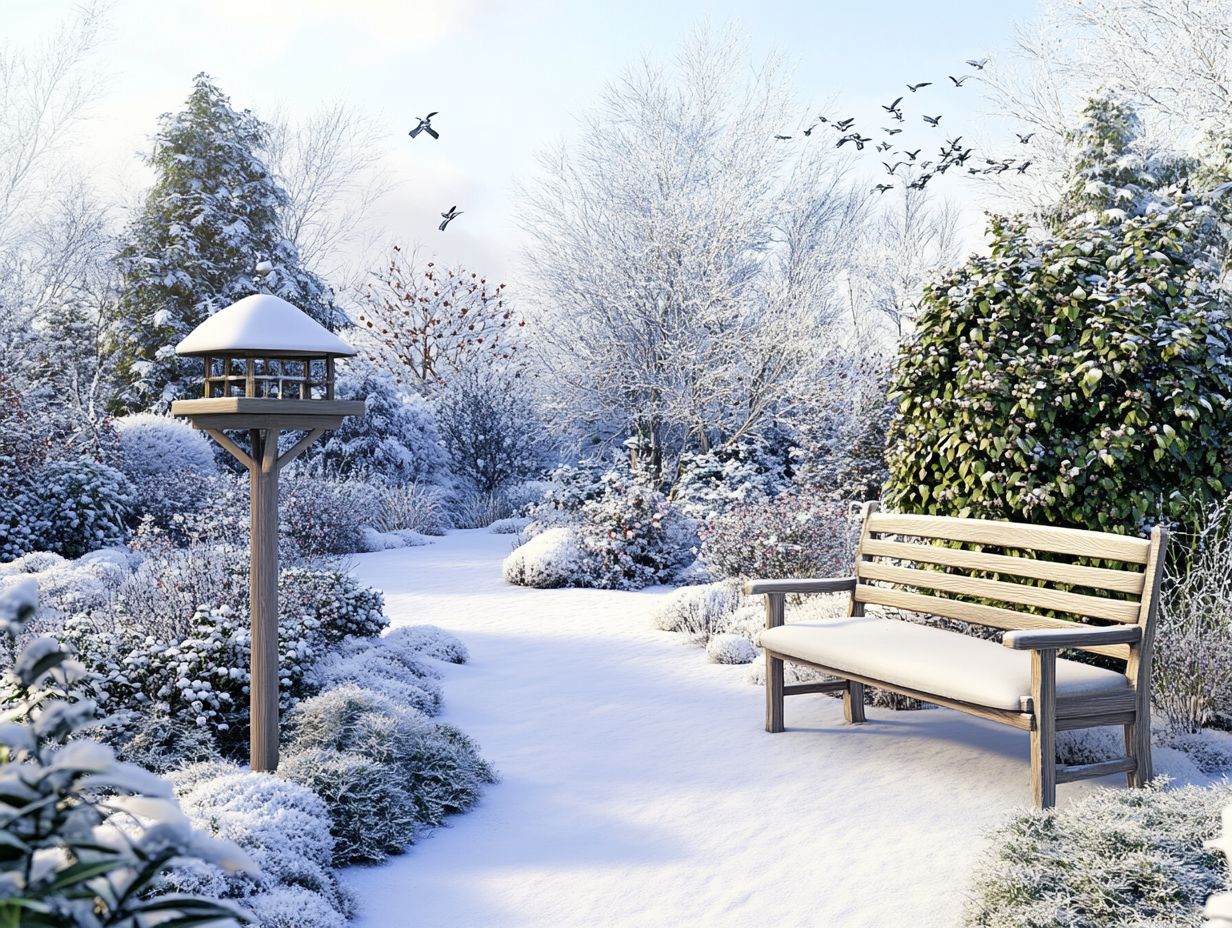
The notion that fertilizing is futile in winter overlooks the vital nutrients that plants can still absorb. Organic fertilizer plays a crucial role in maintaining adequate nutrient levels, even during the colder months.
As temperatures drop, many gardeners assume that plant growth comes to a complete stop. However, roots continue their development. This makes it essential to provide nourishment during this period.
Winter fertilization not only sustains the necessary nutrient balance but also promotes stronger root growth. This is vital for the rejuvenation of foliage and blooms come spring.
Opt for fertilizers that are low in nitrogen and high in potassium and phosphorus. These options enhance root strength without spurring excessive top growth. Apply these fertilizers slowly throughout the winter months to significantly improve overall plant health. This sets the stage for a vigorous growing season ahead!
The Benefits of Winter Fertilization
The advantages of winter fertilization are compelling. It enhances the activity of soil microbes and promotes healthy plant growth by supplying essential nutrients during the dormant season.
This practice improves nutrient availability and significantly boosts soil health. It enhances soil structure and moisture retention.
For example, when you incorporate organic fertilizers like compost or well-rotted manure in late fall, you provide a slow-release source of nitrogen, phosphorus, and potassium. These elements are crucial for your plants’ vitality.
Apply these organic amendments around the base of perennials before the ground freezes. This allows the nutrients to integrate into the soil, poised to nourish the roots as spring arrives.
Using cover crops like clover or vetch enhances soil fertility and prevents erosion during the colder months. This sets the stage for robust growth when temperatures rise.
Myth: Winter is a Good Time to Ignore Your Garden
The notion that winter is a time to neglect your garden can lead to significant setbacks in both plant health and quality. Consistent winter garden maintenance is essential for sustainable gardening practices.
By overlooking this crucial task, you risk losing precious plants to relentless frost or hidden pests. These pests lie in wait during the colder months.
As temperatures drop, protecting flowering shrubs and young saplings becomes increasingly vital. They are particularly susceptible during this harsh season.
Using mulch helps retain soil warmth and acts as a barrier against pests. Regularly inspect for signs of disease or invasive species. This can save you considerable effort come spring.
Simple actions, such as wrapping delicate plants and ensuring proper drainage, can make a profound difference. This ensures that your garden emerges vibrant and thriving once the thaw arrives.
Why Winter Care is Essential for a Healthy Garden
Winter care is vital for maintaining a healthy garden. It ensures the longevity of your young trees and supports overall soil health.
During this season, effective garden management is key. Monitor soil moisture levels to prevent drying out and ensure proper drainage to avoid root rot.
Protecting your plants from extreme temperatures through thoughtful mulching and windbreaks can significantly alleviate stress on vulnerable species. Pay special attention to evergreens and perennials, and apply protective coverings as needed.
As you prepare for spring planting, assess last year s layouts and think about changing the types of plants you grow in a certain area each season. Plan for any new additions.
Incorporating strategies like testing soil acidity or alkalinity and enriching the soil with organic matter will set the stage for a vibrant, bountiful garden in the upcoming season.
Frequently Asked Questions
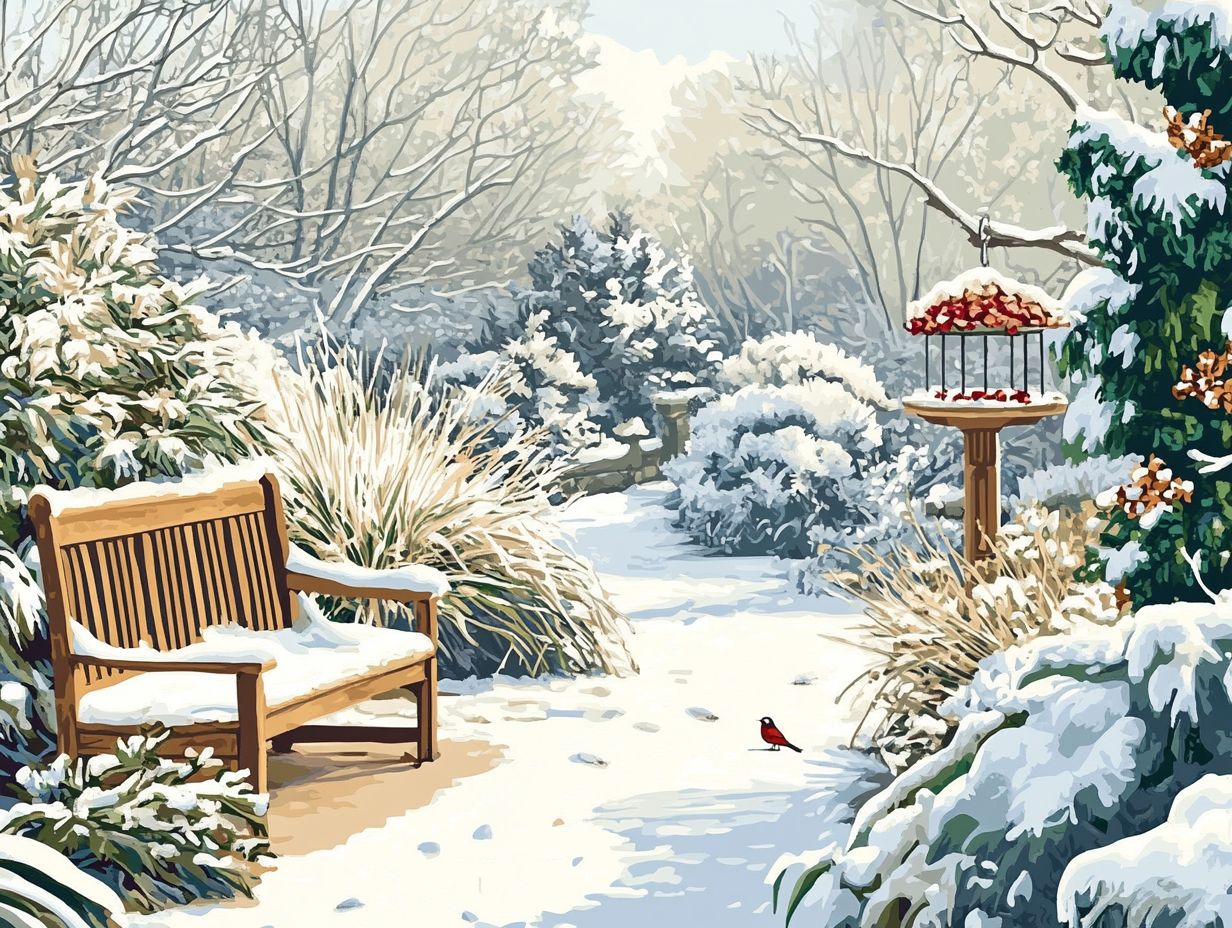
Some common gardening myths related to winter include the belief that plants don’t need water during this season, which is just one of the top 10 cold-climate gardening soil myths.
Many also think that snow provides enough moisture and that plants don t require fertilizer.
Is it true that winter is a bad time to plant new trees and shrubs?
No, this is a myth. Winter can be a great time to plant new trees and shrubs.
They have a chance to grow their roots before the growing season begins.
Do plants need less sunlight in the winter?
No, plants still require a similar amount of sunlight in the winter.
In fact, they may need even more since the days are shorter and the sun is lower in the sky.
Should I remove snow from my plants?
This depends on the amount of snow and the type of plants.
Heavy snow can damage plants, so gently brush it off if it’s too much.
However, light, powdery snow acts like a cozy blanket, insulating and protecting your plants from the cold.
Is it necessary to cover plants during the winter?
Great news! Most plants can handle winter without a cover.
Many can withstand colder temperatures and do not need extra protection.
However, sensitive plants or new plantings may benefit from a covering to protect them from harsh winds or extreme cold.
Do plants only grow during the spring and summer?
No, this is a myth. While growth may slow down during the winter, plants continue to grow.
This is especially true for evergreen plants that retain their leaves or needles year-round.

